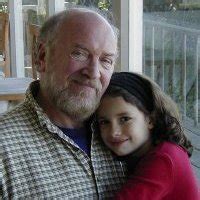A Quote by Oliver Stone
But I suppose film is distinctive because of its nature, of its being able to cut through time with editing.
Related Quotes
I think I have an obligation, to the people who have consented to be in the film, to make a film that is fair to their experience. The editing of my films is a long and selective process. I do feel that when I cut a sequence, I have an obligation to the people who are in it, to cut it so that it fairly represents what I felt was going on at the time, in the original event. I don't try and cut it to meet the standards of a producer or a network or a television show.
If you make a film, that magic is not there, because you were there while shooting it. After writing a film and shooting it and being in the editing room every day, you can never see it clearly. I think other people's perception of your film is more valid than your own, because they have that ability to see it for the first time.
If you take a big epic novel and you shoot it, when you get to the editing room you notice that it has 2 million climaxes, which fill the whole 90 or 100 minutes. Then you realize you can't cut them out because if somebody is dying and you cut that out it seems like they just disappear from the film.
When I'm editing, I tend to cut, go back over it, cut, go back over it, cut, so by the time I'm done, even with a cut, I don't have a rough cut and then work on it so much. I have a pretty rigorous cut of the movie that's usually in the range of what the final movie is going to be. It doesn't mean I don't work on it a lot after that, but I get it into a shape so I feel I can really tell what it needs, or at least it's ready to show people.
Performance is made in the editing room, and I've come to see the truth in that - the idea that they say performances are usually made in the editing room because what you film is the raw material. I think just going through the process of saying, "Which take do we use? Why is that the take we want? I want that take can you edit again, I'm not sure that's the one, I think it's this one." And just because you go through that process, I think somehow it's made me sort of more open about the [actor's] possibilities.
The hardest stories we tell are always about ourselves. How do you explain that you have been missing your mother for 20 years? I don't know how to explain that to you. I wasn't even sure I wanted to film that, because I don't know how I felt about it. I didn't want to put her through it, and I frankly wasn't ready. Because since I was 16, I just had created my own life for myself, you know? I left when I was 12. I'm 32. And I have gotten to know my mother more through editing her and looking and watching and editing her footage, you know.




































